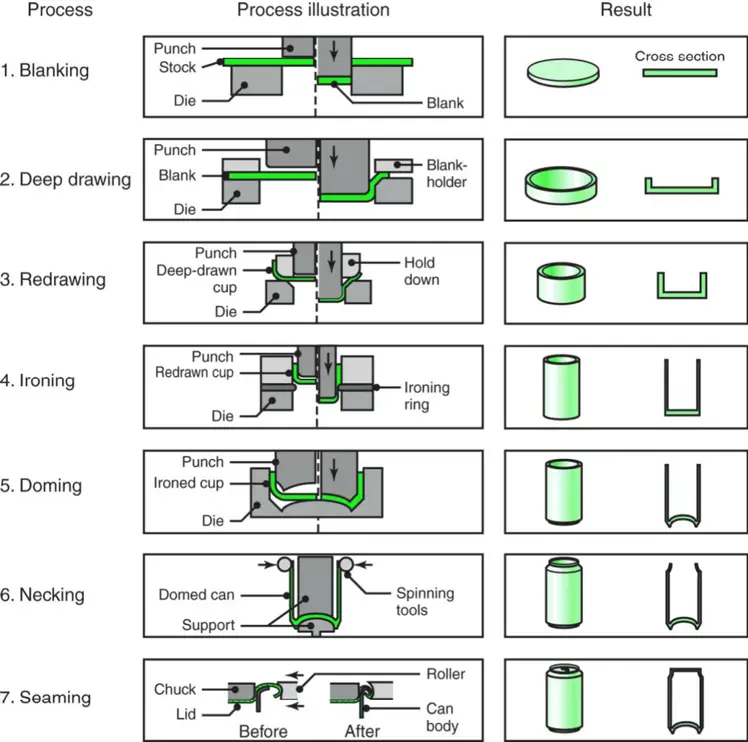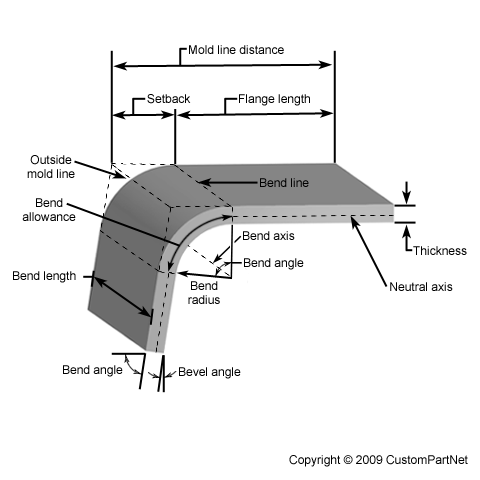Different types of sheet metal forming processes and their applications and characteristics are discussed below.
Different types of sheet metal forming processes.
In doing so we shall show how i the work load.
Bending along a straight line is the most common of all sheet forming processes.
Sheet metals are seen on automobile and truck lorry bodies medical tables airplane fuselages and wings roofs for buildings architecture and many other applications.
For a process like forging the maximum flow stress value would be very important.
This is a commonly used manufacturing process that helps in manufacturing the parts for tons of known and unknown purposes.
There are a number of different types of bending such as.
The first one is sheet metal cutting second one is sheet metal bending or forming and the last one is known as deep drawing in this article we mainly focus on sheet metal cutting operations and other two we will discuss into upcoming articles.
In this article we will discuss about the metal forming processes.
Sheet metal is formed cold.
Forming operations cause stress below the sheet metal s ultimate strength resulting in distortion.
However for a process like extrusion where the metal is continuously being deformed and the different stages of the metal s deformation are occurring simultaneously it.
Sheet metal forming process is done on a press and the parts are formed in between two die.
Sheet metal forming processes.
Mainly sheet metal process can be divided into three types.
And also the below mentioned article provides a lecture note on metal forming processes.
Sheet metal is metal formed by an industrial process into thin flat pieces.
Sheet metal forming operations.
Types of metal forming processes 2.
Sheet metal forming.
Techniques of metal forming processes.
The die at the top is called a punch.
Sheet metal is one of the most essential material used in almost all applications that surround us today they are of different types with different properties making their forming process and uses broad.
Sheet metal is one of the fundamental forms used in metalworking and it can be cut and bent into a variety of shapes countless everyday objects are fabricated from sheet metal.
It can be done in various ways such as forming along the complete bend in a die or by wiping folding or flanging in special machines or sliding the sheet over a radius in a die.
Thicknesses can vary significantly.
Wiki based upon the manufactured components and the manufacturing process various kinds of forming are developed.
Extremely thin sheets are considered foil or leaf and pieces thicker than 6 mm 0 25 in are considered.
Classification of metal forming processes 3.
Forming is the most widely used sheet metal operation used for manufacturing various sheet metal components across the industry.









